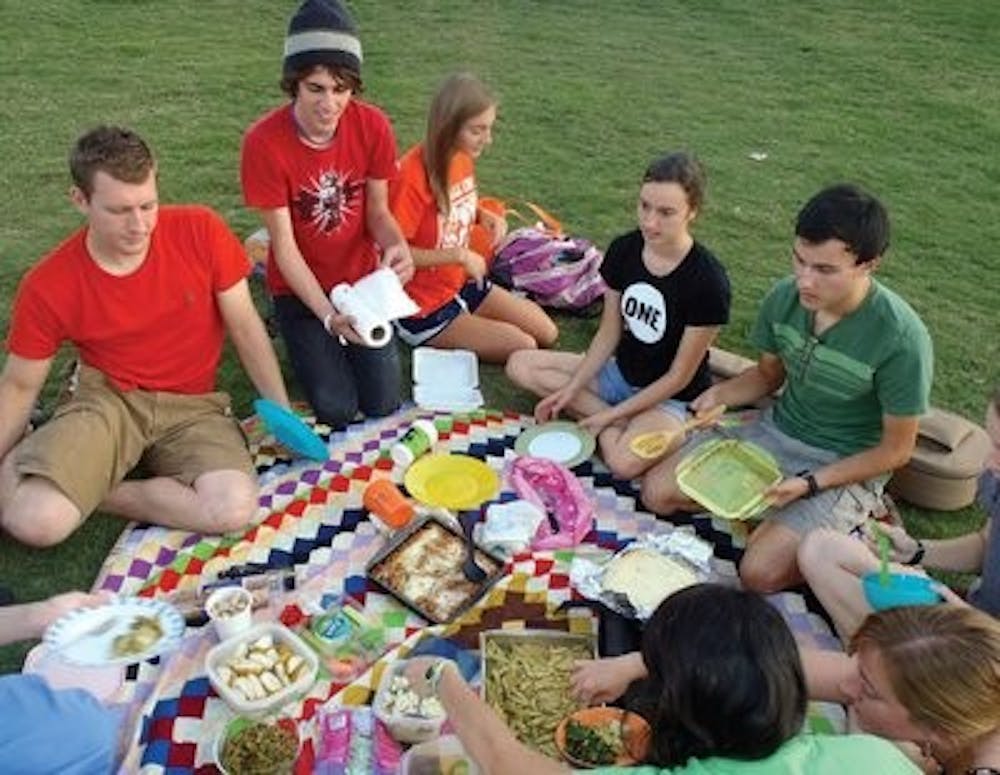Consider what exactly is in the campus food. Where did the tomatoes on that sandwich come from, and how fresh is that leaf of lettuce?
That question is the drive behind Auburn's Real Food Challenge, a student initiative created to establish a local food system and real food options for campus dining.
Rosco Davis, senior interdisplinary major, founded the Real Food Challenge in 2011.
"Real food is local, ecologically sound, fair and humane," Davis said. "Real food is food that is good for your body, and it's good for the planet, and on a smaller scale it supports your community because it's grown by people in your community; it's not shipped around all over the planet, and the money stays in your community."
The Challenge is looking to incorporate 20 percent real food into Auburn's dining by 2020.
They want to cultivate a food system that "doesn't go to the corporate farming industry that has gotten so popular with the agriculturalist, taking it back to the roots," said Jen Sellers, education outreach coordinator for the Challenge and senior in human development and family studies.
The main source of income for the Challenge is its initiation of a community garden. The garden is composed of approximately 55 900-square-foot plots that can be rented to students, professors and community members.
Recently, the Challenge created a co-op business model for a restaurant venture, "Locavore Cafe." The idea is to sell local, organic and student-grown food by using employees paid in food credits.
"This would intrigue anyone that's into eating healthy food, because you work a little bit and then you get to eat a lot of good food," Davis said.
They arranged it so each employee would be a co-owner of the cafe and everyone will have equal input into how the business is run.
The model will be presented in Auburn's Start-Up Challenge.
"The co-op's menu would be seasonal; it would be flexible," Davis said. "We'd offer menu items based on what we had. That'd be okay because that is how we operate. We would be supplemental to Tiger Dining; we'd be another option."
As the semester comes to a close, the Challenge looks for members to lead and maintain the organization's ideals and projects.
"We are a totally student-driven initiative, like no administrator or faculty came to us," Davis said. "So everything that we've learned and everything that we do is stuff that we have taken the initiative to do. Our organization is never going to be spoon fed, because this inspiration came from students."
The option of reusable silverware at dining halls Foy, Terrell and the Village was created by the Challenge initiating the "Love Food, Not Waste" campaign. Members worked with senior executive chef Emil Topel by proposing the idea and reviewing costs and benefits.
"It has saved money, even though we've lost 1,000 pieces," said Sellers of the silverware.
The efforts of the Challenge have been modeled after successful programs from schools like UC Berkeley, University of Maryland and University of Washington.
"It's a risk, because we're trying to bring change," Davis said. "There is no guarantee that our efforts are going to be successful or that you're going to see it. We have to run on faith and accept -- believe and accept -- that what we do has an impact even if we don't see it."
Do you like this story? The Plainsman doesn't accept money from tuition or student fees, and we don't charge a subscription fee. But you can donate to support The Plainsman.





